7. Sunset Boulevard (1950)
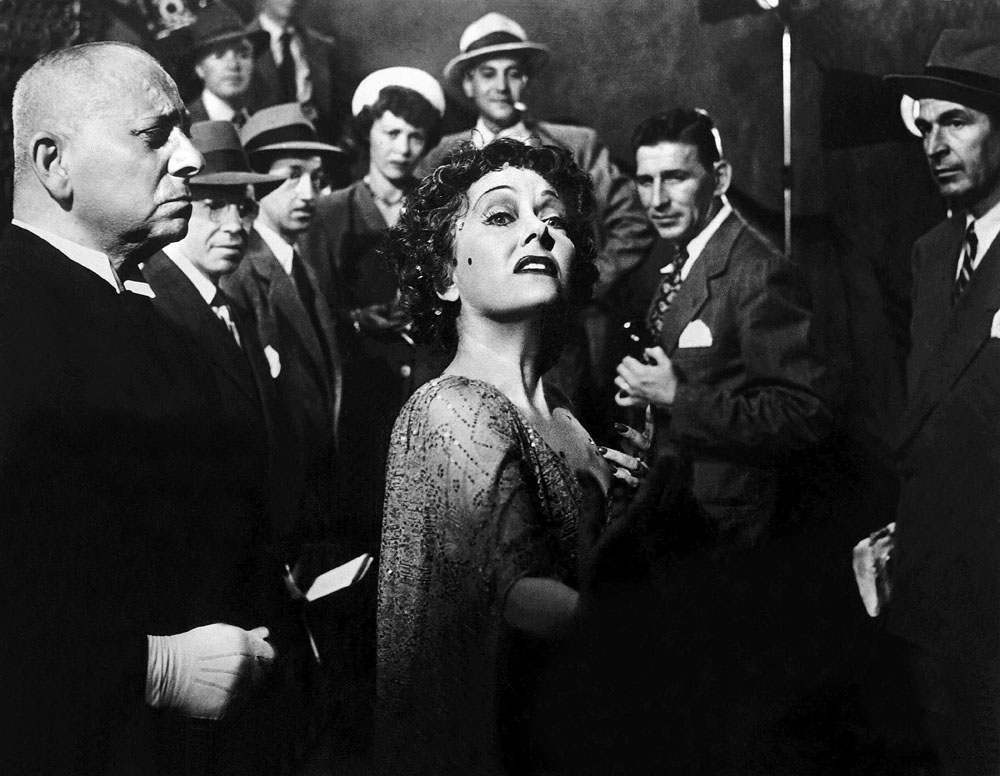
Hollywood has always been a beacon for those seeking fame and success. Aspiring actors, musicians, singers, filmmakers, writers, artists, studio executives and agents come from all over the world to try their luck in tinsel town and achieve fame and success. Plenty fail and are forced to return home, forever giving up on their dreams. A lucky few may succeed, but at what price?
Fading screenwriter Joe Gillis (William Holden) is offered one last chance at redemption when he befriends long forgotten silent film star Norma Desmond (Gloria Swanson). Norma has written a new script, one that she believes will be her great comeback, and needs Joe to be her script doctor.
The film is a tragedy, made clear in the opening scene where Joe lays dead in a swimming pool and narrates the final days of his life. What lead to this tragedy was the pursuit of fame. Wealth and success is merely a by-product of this fame. Norma’s obsession with fame is not only dangerous to her, but it is also toxic to those around her.
Not only has it claimed the life of Joe, but also that of butler Max (Erich von Stroheim) a once great director who sacrificed his career for his muse, unable to deal with life without her after she divorced him. In the end, the pursuit of happiness of these three characters has ended in the loss of a life, the loss of a career and the loss of sanity.
6. Scarface (1983)
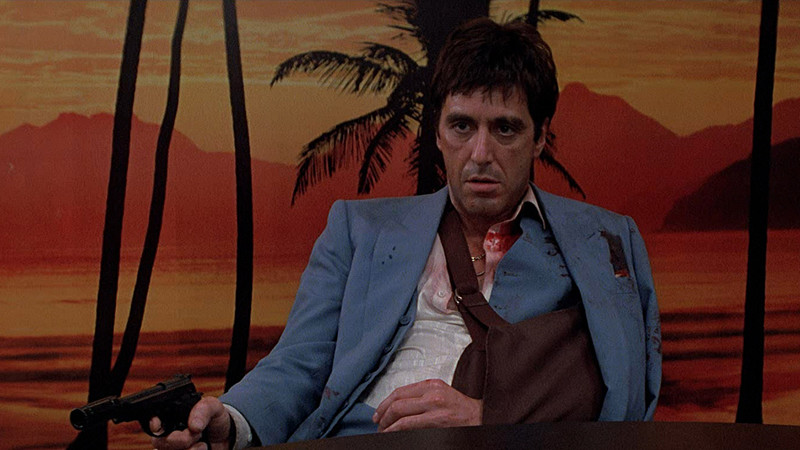
Scarface is, quite possibly, the most divisive film ever made. While drawing a lot of derision for its extreme violence and profanity, it has also been praised, sometimes for the exact same reasons.
Not only is the film responsible for several memorable lines (Say ‘ello to my little friend!) but has also been referenced numerous times, from The Simpsons to Entourage, Pain & Gain to War Dogs, Lock, Stock and Two Smoking Barrels to Swordfish. These references range from the tongue in cheek to character motivations.
Tony Montana (Al Pacino) is just another one of the millions of immigrants that arrives in America, hoping to achieve his American dream. Not satisfied with his progression as a dishwasher, Montana dives head first into Miami’s drug trade. With the cocaine boom in full force, Montana quickly rises through the ranks before coming a kingpin, only to watch as everything comes crashing down around him.
What is most disturbing about De Palma’s adaptation is not the message given in the film, but rather the message that is taken away by audiences. Apart from the catchy one-liners, Montana’s story has resonated with millions of people.
While this does not mean they will quit their jobs to deal cocaine and start a drug empire, the fact that so many people see Montana through his catch phrases rather than the heinous crimes he has committed says a lot about society. Does he simply represent our dark, hidden desires for wealth, power, success and fun or do we admire him for committing reprehensible acts in order to succeed?
5. The Wolf of Wall Street (2014)

Wall Street again. This time however, it is Martin Scorsese’s Wall Street. With numerous films covering the inherent corruption within the stock market, including Wall Street and American Psycho, what exactly could America’s greatest director bring to the big screen that audiences have never seen before? The answer lies in an age-old saying: truth is stranger than fiction.
Jordan Belfort (Leonardo DiCaprio) is a real life Gordon Gecko. A self-described ‘money-hungry little shit’ who goes from working out of a old mechanics workshop to starting one of the most successful firms on Wall Street. However, like all of Scorsese’s Americana films, the dream comes crashing down. Just like Oliver Stone’s Wall Street, Scorsese examines the inherent greed within Wall Street but also, the extravagant and downright strange lifestyles of the men and women who won it all.
For Belfort and his fellow brokers at Stratton Oakmont, fast cars and bog houses simply was not enough. They wanted it all. Money, houses, cars, yachts, drugs and women. The only thing these men were not interested in was power. Belfort was no Gordon Gecko. He had no interest in power for the sake of power. Unless it made him rich, he had no use for it.
Belfort’s father Max (Rob Reiner) sums it up perfectly, “Crazy?” he says, when asked by Jordan, “This is obscene.” Even Jordan agrees but to him, that is a concept only present in the ‘normal world’, something he has rejected. Belfort cannot even understand why bribing and FBI agent is a bad idea. To Belfort, the concept of personal integrity above financial wealth is un-American.
4. There Will Be Blood (2007)
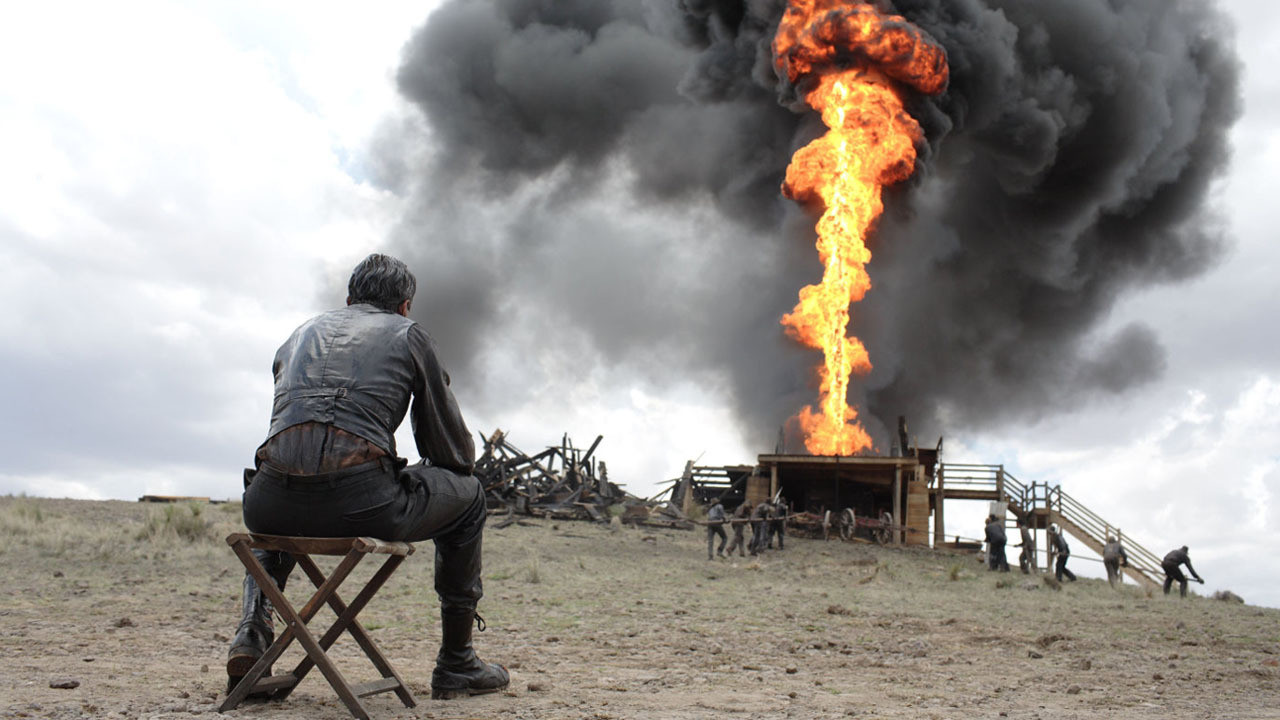
Paul Thomas Anderson’s masterpiece has been praised for exploring numerous themes including greed and capitalism. At its core, however, it is a film about America. The rise of individual wealth and the corruption of the individual at the hands of capitalism and religion, two of America’s greatest influences.
If Daniel Plainview (Daniel Day-Lewis) were a real businessman, he would be praised today as the ultimate rags to riches story. An entrepreneur and self made man who built up an oil empire, adopted the son of a dead colleague and once dragged himself to safety after breaking his leg in a pit. But, like plenty of self-made men, Plainview has some skeletons in the closet.
Plainview is capitalism incarnate. Hard, uncompromising, vicious, he has little to no room for anything that can make him human. His son, H.W, represents the last lingering threads of his humanity. But when H.W. loses his hearing following an accident, Plainview loses all compassion for his fellow man. “I have a competition in me, I want no one else to succeed”, he tells the man he believes to be his brother.
In the end, Plainview loses all essence of humanity, killing preacher Eli after the latter tries to extort money. “I can’t keep doing this on my own, with these…people” he mutters before letting out a chilling laugh. Plainview is no longer human. He is simply capitalism incarnate, a shell of a man dedicated to nothing but money and success.
3. The Social Network (2010)

When it was announced that David Fincher would be adapting Aaron Sorkin’s script about the founding of Facebook, many raised an eyebrow. This the same David Fincher who gave us the dark urban nightmares of Se7en and Fight Club? Perhaps he knew something we did not.
Clearly, he did.
The Social Network was one of the most critically acclaimed films of 2010 and is considered one of the best of the 21st Century. The film is Shakespearean. Plots and betrayal are afoot as a group of Harvard students change the face of social media forever.
Close friends Mark Zuckerberg (Jesse Eisenberg) and Eduardo Saverin (Andrew Garfield) could not be any different: socially awkward and introverted Zuckerberg focuses on the coding and construction of the site while the outgoing and confident Saverin focuses on promotion. Despite this, the two are best of friends.
However, fame, money and personal ambition quickly comes between the two and cracks emerge in the foundation of their friendship. Jealousies and resentment emerge and as more people, including Sean Parker and the Winklevoss Brothers, come between them.
Zuckerburg’s eventual betrayal was even predicted by his ex-girlfriend, “You’re probably going to be a very successful computer person. But you’re going to go through life thinking that girls don’t like you because you’re a nerd. I want you to know from the bottom of my heart, that that won’t be true. It’ll be because you’re an asshole”.
In the end, Mark finds himself with no friends, sitting on Facebook sending a friend request to the same ex-girlfriend and hitting refresh every few seconds. A sad image, not just on social interactions in the 21st century, but the lengths one can go to for success.
2. Goodfellas (1990)
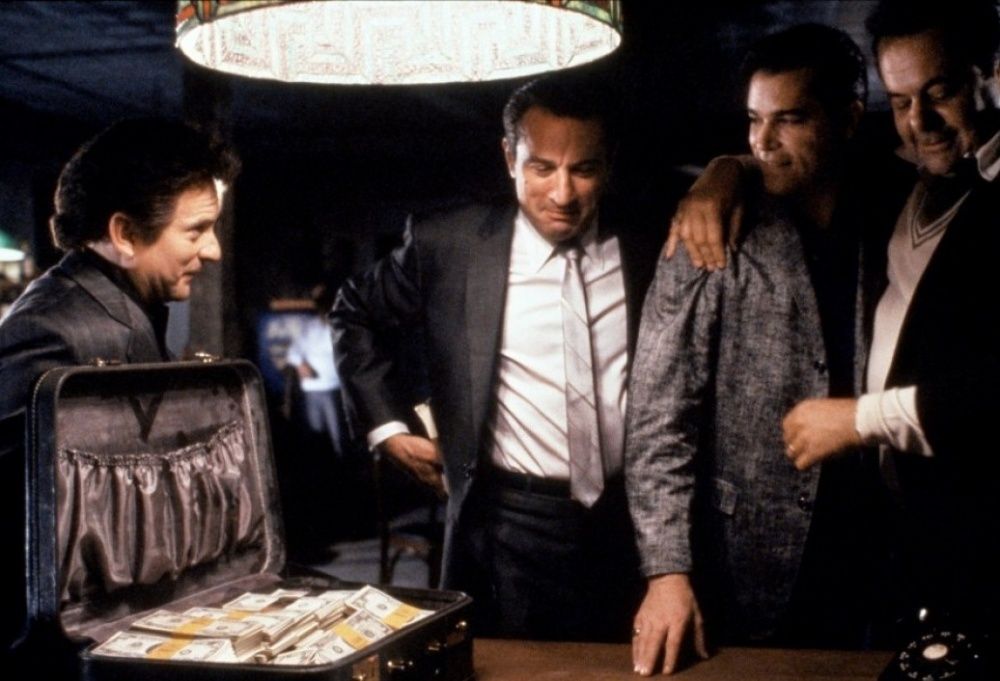
It is hard to shake that opening scene where Henry Hill (Ray Liotta) opens the trunk of his car, inside is a body, gasping for breath. His partners proceed to stab and shoot the man multiple times, “As far back as I can remember, I’ve always wanted to be a gangster,” narrates Hill. However, it is Hill’s next words that define him, “To me, being a gangster was better than being President of the United States”.
To some, a life of crime is not a choice. A mixture of poverty, a tough upbringing and psychological issues can drive anyone to crime. For Henry Hill, however, a life of crime is his version of the American Dream. Apart from his father’s liberal use of his belt, Hill’s home life is loving. He cares for his siblings and his parents care that he attend school and stay out of trouble. So why does he end up skipping school and spending his days completing odd jobs for the local Italian gangsters?
Hill’s naivety is a key part. He watches as the local gangsters intimidate and threaten anyone who is an inconvenience to them, including a postman delivering Hill’s bad grades to his parents. Hill only sees the romantic notions of respect and power in gangsters when in fact they are nothing more than common thugs working out of small local businesses.
Despite being one of the few that possesses a conscience, seen with the murders of Billy Batts and Spider, Hill is trapped, not just out of fear for his colleagues, but his notions of respect and loyalty. However, by this point, he is in far too deep and he is forced to choose between his allegiance to his friends, infused into him since childhood, or the safety of his family.
1. American Beauty (1999)
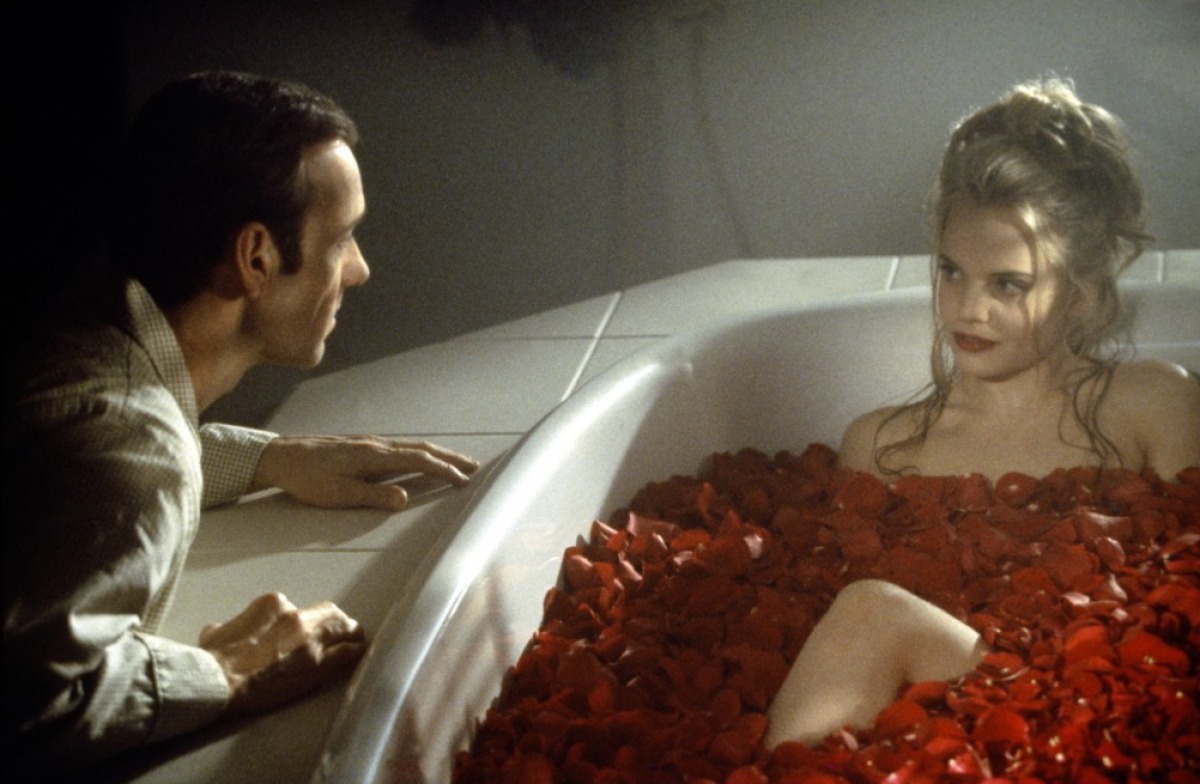
The only thing worse than failing to succeed in your dreams, is to succeed and become disillusioned. A happy, fulfilled life is always within sight of a successful dream. However, happiness is not always guaranteed and an individual can be left disillusioned, aimless and depressed.
Lester Burnham (Kevin Spacey) is a perfect example of this disillusionment. On the surface, he lives the perfect life. Successful as an advertising executive, Lester lives in the perfect American neighborhood with his perfect family including a daughter he loves and successful real estate agent wife. However, underneath all this, Lester is unhappy. He feels trapped in his job and emasculated by his wife.
After falling in love with his daughter’s friend, Lester rejects the world around him. He quits his job (blackmailing his boss in the process), buys a brand new car and starts working out again. He even gets a job at a fast food outlet, seemingly regressing back to his teenage years.
Lester’s rebellion does not just bring down his world, it digs into the psyches of those around him. The confident Angela reveals deep insecurities; Ricky and Jane reveal their own hatred of their lives, Carolyn’s fear of failure and Colonel Fitts’ sexual desires. Ultimately, Lester’s rebellion leads to tragedy. No matter how hard one tries, no one can escape from their destiny.